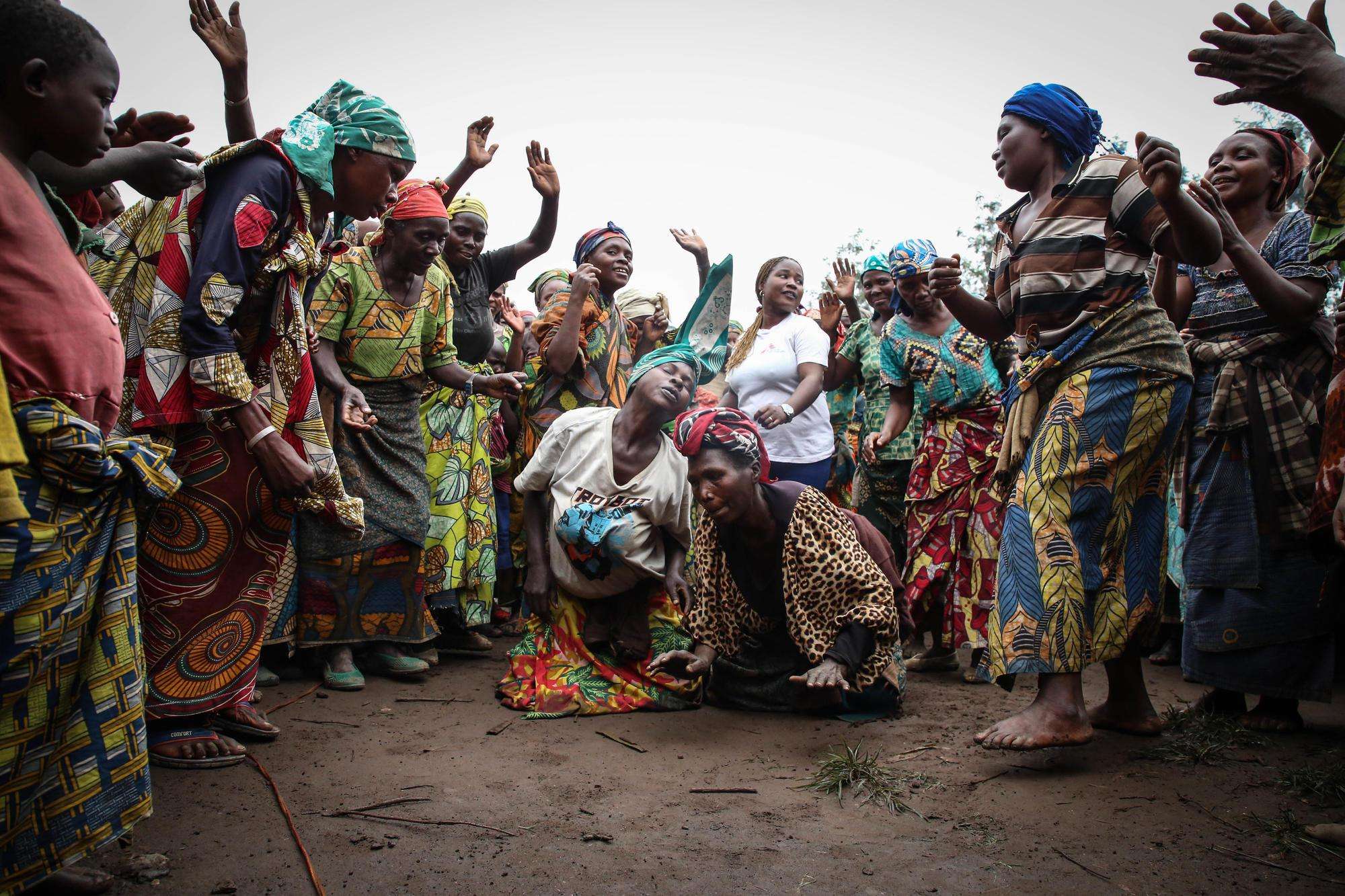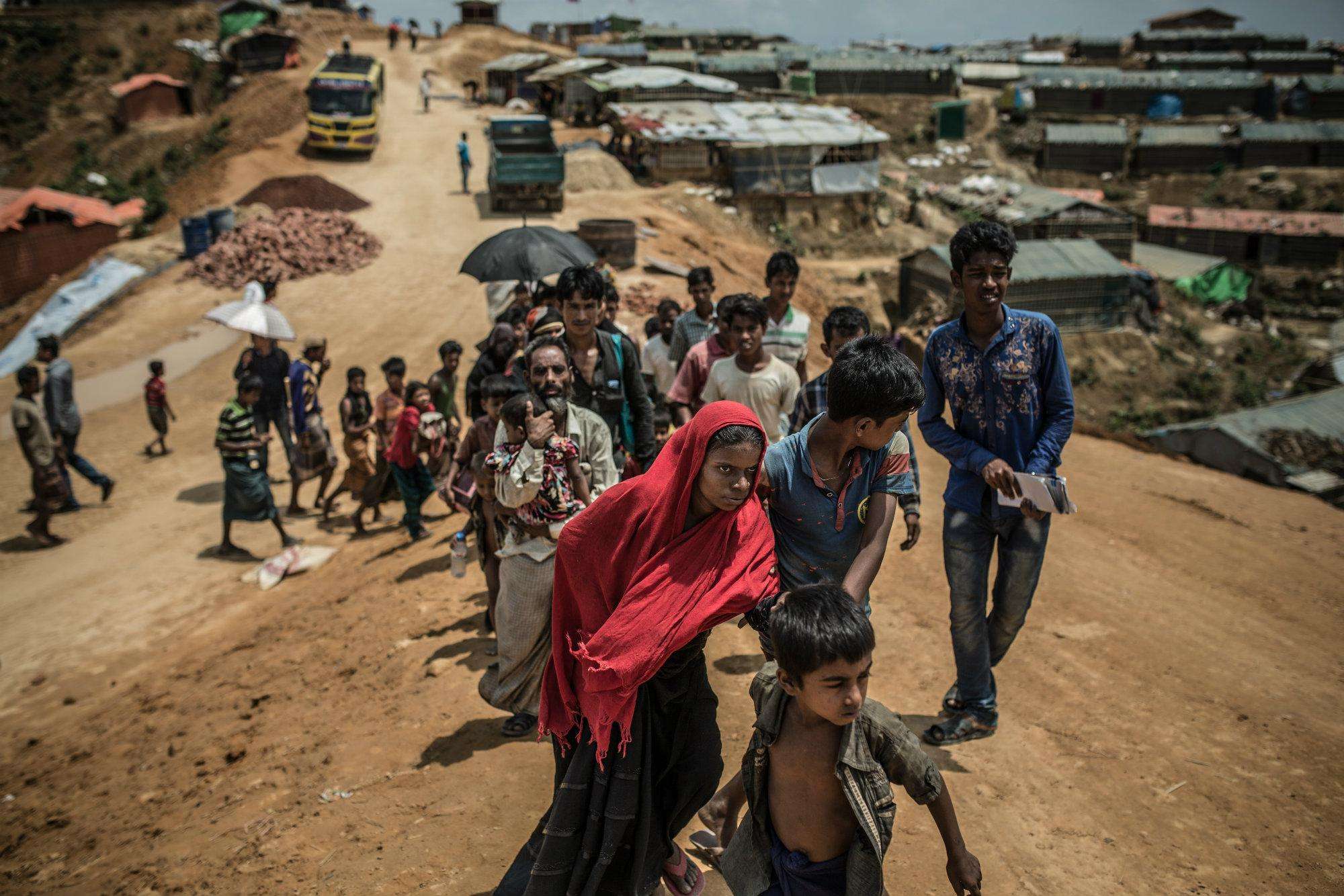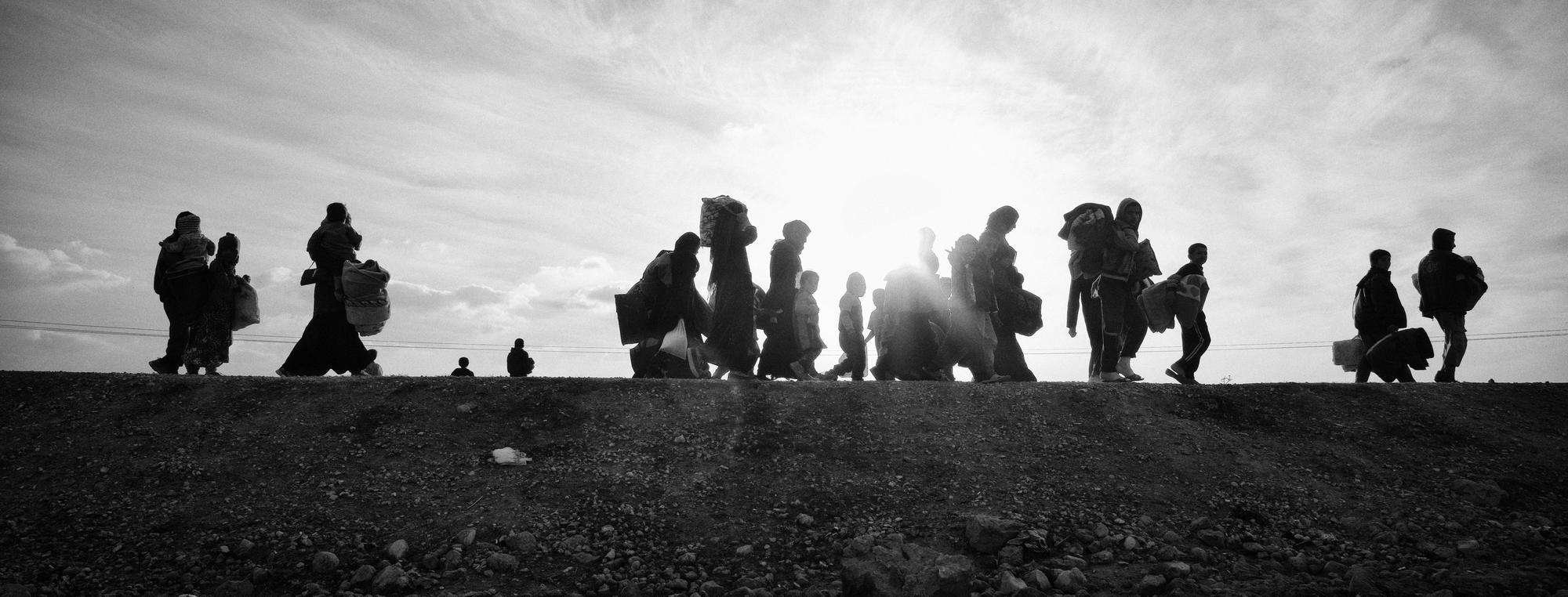At projects around the world, MSF teams are working to meet the health needs of women and girls forced from home. Margaret Bell, a registered nurse, midwife, and women‘s health advisor for MSF, describes some of the challenges they face.
One of the first babies born at an MSF clinic this year was a little boy at a Rohingya refugee camp in Bangladesh. Our medical staff found that his mother, Raheema, was suffering from preeclampsia, a life-threatening complication that can develop during pregnancy. Fortunately, they were able to provide her with emergency care and helped her to safely deliver a new life on New Year’s Day.
Raheema (whose name has been changed to protect her privacy) is one out of 65.6 million people forcibly displaced due to violence and persecution. More people are displaced today than at any time in modern history—and around half of all those displaced are women and girls.
Displaced women have many of the same health concerns as women anywhere, such as the need for access to family planning services and a safe place to deliver babies. But women’s specific health needs are often more acute while they are on the move, and their access to medical care may be reduced or non-existent along the journey.
Many displaced women are fleeing from conflict. War and upheaval can have a devastating effect on health infrastructure, meaning that women may lose access to health care even before they are displaced. Once on the move, health care can be out of reach due to lack of services, distance, transport barriers, lack of finances, or uncertainty about available services. Prevailing insecurity can also hinder access.
Any displaced population will include pregnant women like Raheema, but many women lack access to the medical care that she was able to receive. Pregnancy carries risks for all women, and even more so when they are displaced. These women are more vulnerable to miscarriage and pre-term delivery, but are less able to access antenatal care, a safe birthing environment, and emergency obstetric care. A lack of access to emergency obstetric care makes giving birth extremely dangerous for displaced women. For women anywhere, we know that 42 percent of all pregnancies will have a complication. For 15 percent, those complications are life-threatening.
Women on the move may also wish to delay pregnancy until their lives are more stable and secure, but they often do not have access to family planning services. They may have begun their journey with contraceptives, but have either lost or run out of them while on the move. This can lead to unwanted pregnancies, which increases the risk of unsafe abortions, which account for up to 13 percent of all maternal deaths worldwide, according to the World Health Organization.
Women and adolescent girls living in conflict situations and on the run are particularly vulnerable to sexual violence, especially if they are traveling alone. Sexual violence may be used by warring parties as a deliberate strategy to punish or control communities; by border guards abusing their power; or by human smugglers in coerced exchange for food and other basic needs. Sexual violence is a medical emergency that can lead to sexually transmitted infections, such as HIV, unwanted pregnancies, and long-term mental health consequences.
During field assignments with MSF, I have met so many displaced women exposed to sexual violence. I recall one woman who was pregnant from rape. She had only been displaced a short distance due to a natural disaster, but her husband was missing, leaving her alone and vulnerable to violence in a crowded displaced persons’ camp. She came to our clinic for an HIV test, but also because she was determined to keep her baby, having lost two previous children in infancy. Like many women, she had a variety of interdependent health needs. We provided her with regular antenatal care, but ultimately it was our psychological support that she needed most.

Mental health care is another of MSF's key activities for displaced women and girls, who have often been exposed to trauma, such as witnessing extreme violence. The uncertainty of life in a refugee settlement is another source of stress. Families are often separated, leaving women alone with the pressures of supporting children in an unfamiliar environment with little resources or services. Women may deprioritize their own health care, particularly their mental well-being, because they are so busy meeting their children’s basic needs.
As global displacement has increased in recent years, so too has MSF's support for migrants, asylum seekers, and refugees. Our activities respond to the specific needs of women at various points on their journey—whether displaced in their own home countries, like Iraq or South Sudan; in transit countries, like Greece or Mexico; or in countries where they have settled, like Jordan or Tanzania.
While there are no easy solutions to the protracted conflicts that have sparked this huge wave of global displacement, migrants and refugees are also subject to restrictive policies that place their health and lives at risk. It is in this context that MSF works, providing critical medical care to women like Raheema to reduce their suffering, and ultimately to prevent them from dying while they seek safety.






